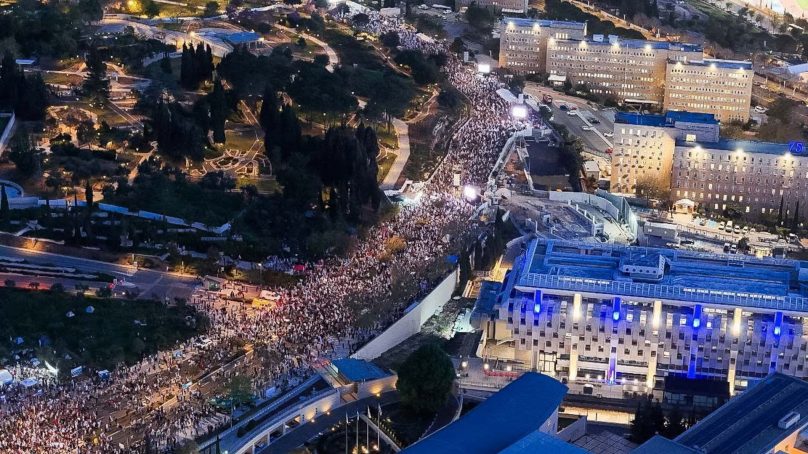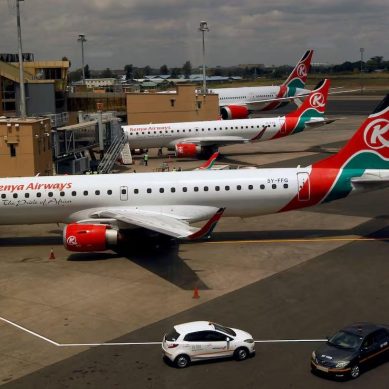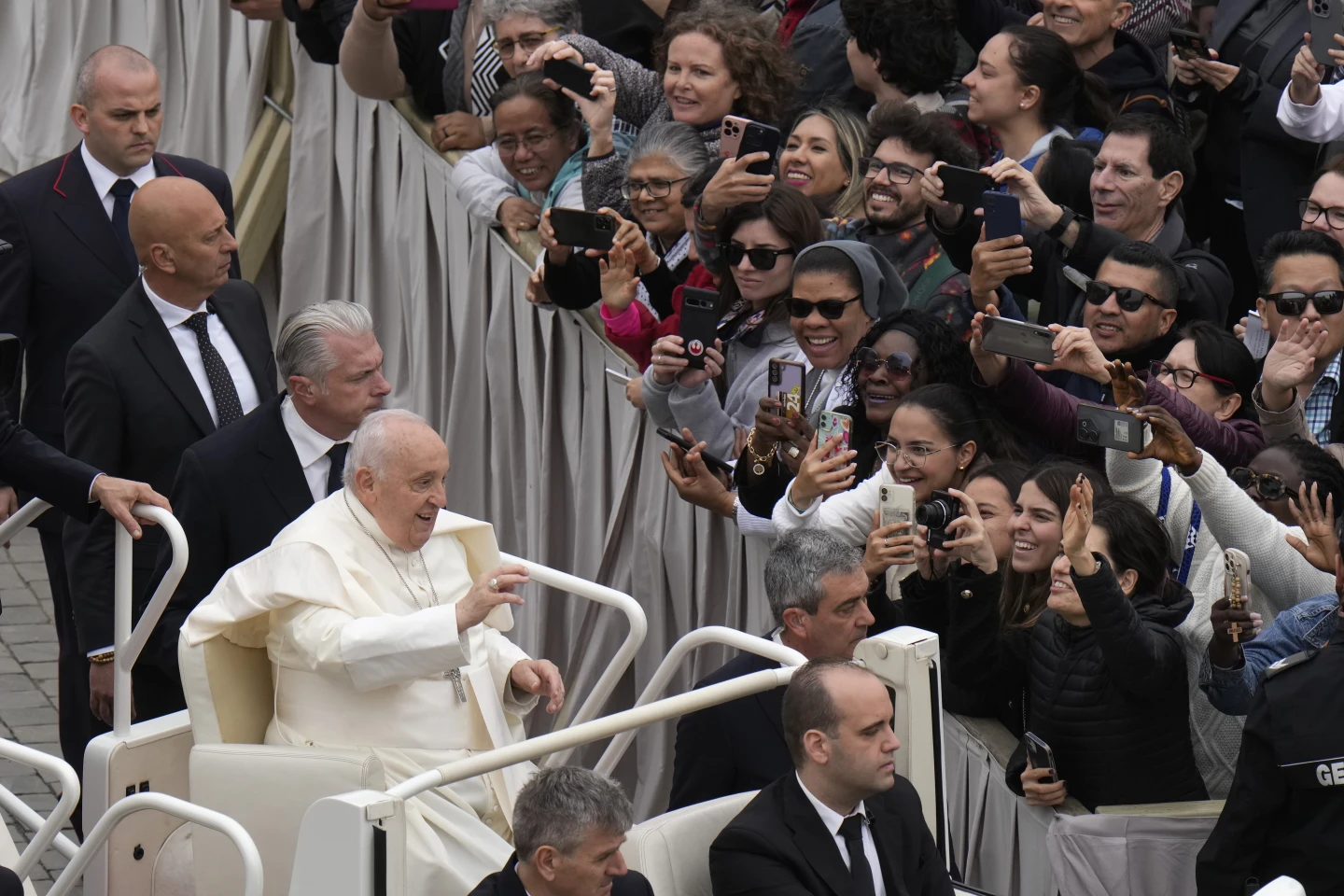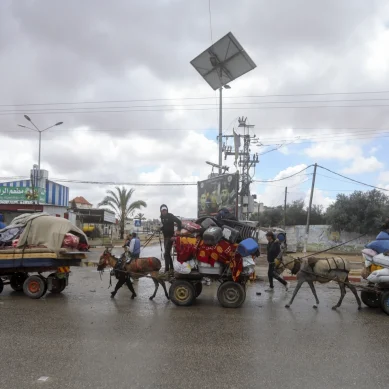
Tens of thousands of people demonstrated in Jerusalem on Sunday against Benjamin Netanyahu’s government and against exemptions granted to ultra-Orthodox Jewish men from military service, in scenes reminiscent of mass street protests last year.
Protest groups, including some that led the mass demonstrations that rocked Israel in 2023, organised the rally outside parliament, the Knesset, calling for a new election to replace the government.
The protesters also want a more equal share in the burden of army service that binds most Israelis. Around 600 soldiers have been killed so far since the Hamas attack of October 7 and the ensuing war in Gaza, the military’s highest casualty toll in years.
The protests took place as Prime Minister Benjamin Netanyahu’s office announced that he was scheduled undergo surgery on Sunday for a hernia – at a time when he is waging a war against Hamas in Gaza, and less than a year after he was fitted with a pacemaker.
“On Saturday night, during a routine checkup for Prime Minister Benjamin Netanyahu a hernia was found,” his office said in a statement, adding that the 74-year-old leader will be under general anaesthetic during his surgery later on Sunday.
Signalling his condition was not serious, Netanyahu’s office announced he would hold a news conference at 1630 GMT, before the procedure.
At the news conference, Netanyahu said he was confident a solution will be found. He also said that holding an election at the height of war, when he said Israel was so close to victory, would paralyse the country for months.
In Tel Aviv, some families of hostages and their supporters, blocked a main highway, protesting against what they described as Netanyahu’s failure to return their loved ones.
Israel’s N12 News said it appeared to be the largest demonstration since the war began. Haaretz and Ynet news sites said it drew tens of thousands of people.
Netanyahu’s cabinet has faced widespread criticism over the security failure of the Hamas attack on southern Israel in which 1,200 people were killed and more than 250 taken hostage to Gaza.
“This government is a complete and utter failure,” said 74-year-old Nurit Robinson, at the rally. “They will lead us into the abyss.”
Israel’s war in the Palestinian enclave has aggravated a longstanding source of friction in society that is also unsettling Netanyahu’s coalition government – exemptions granted to ultra-Orthodox Jewish seminary students from service in the country’s conscript military.
With a March 31 deadline looming for the government to come up with legislation to resolve a decades-long standoff over the issue, Netanyahu filed a last-minute application to the Supreme Court last week or a 30-day deferment.
In an apparent accommodation, the Supreme Court gave government officials until April 30 to submit additional arguments. But, in an interim ruling, it also ordered a suspension of state funding for seminary students who would be liable for conscription from Monday.
Protesters were waving blue and white Israeli flags and chanting “elections now”.
During the news conference in Jerusalem, Netanyahu said, “I assure you that I will get through this treatment successfully and return to action very quickly.”
Netanyahu was fitted with a pacemaker last July, while Israel was ensnared in its worst domestic crisis in decades, with widespread protests against his hard-right government’s judicial overhaul plan.
Those protests stopped on October 7 when the Palestinian Islamist Hamas group launched its shock attack on southern Israel, killing 1,200 people and taking more than 250 hostage back to Gaza.
It was Israel’s deadliest single day and the worst attack on Jews since the Holocaust. Israel then launched an air, sea and ground offensive in Gaza, with the declared aim of ending Hamas’ rule there and dismantling its military capabilities.
More than 32,000 Palestinians have been killed in the war and Israel has faced intense and growing international pressure over the death toll and the grave humanitarian crisis in Gaza.
Netanyahu’s popularity, already down over the judicial crisis, has plummeted further since the war, with successive opinion polls showing little faith in his leadership and a defeat by more centrist rivals if an election were held.
With around 137 hostages still in Gaza, there have been steady protests against Netanyahu’s government over its failure to get them home. The government is facing a new crisis over exemptions of ultra-Orthodox Jewish men from military service, an issue that is splitting opinion within the prime minister’s own cabinet.
Now in his sixth term, Netanyahu is Israel’s longest-serving leader. He is also the country’s first sitting premier to be indicted with corruption. His trial is still ongoing and he denies any wrongdoing.
Justice Minister Yariv Levin will be standing in for Netanyahu during the operation on Sunday, his office said.
- A Reuters report











